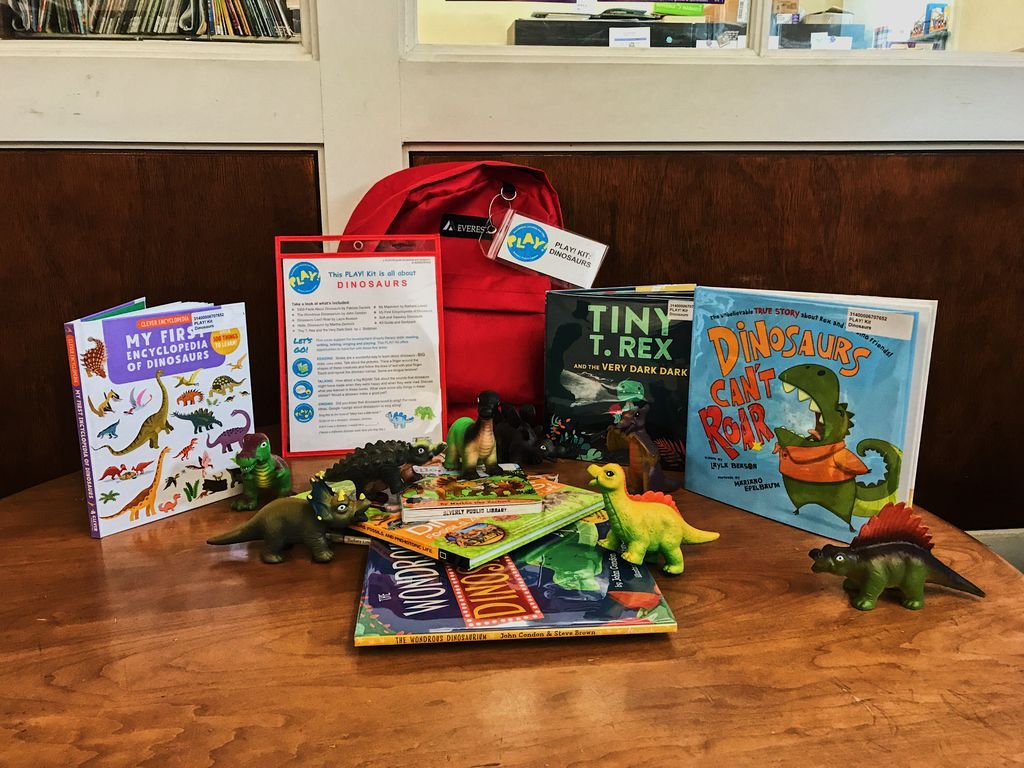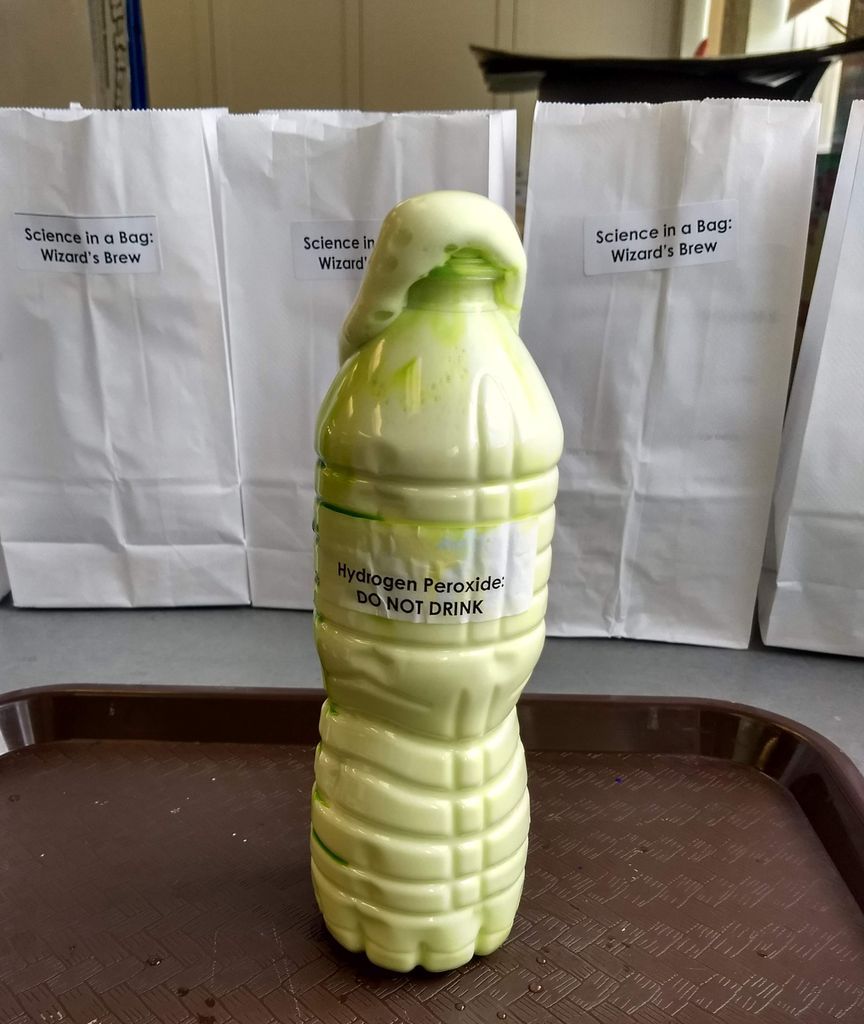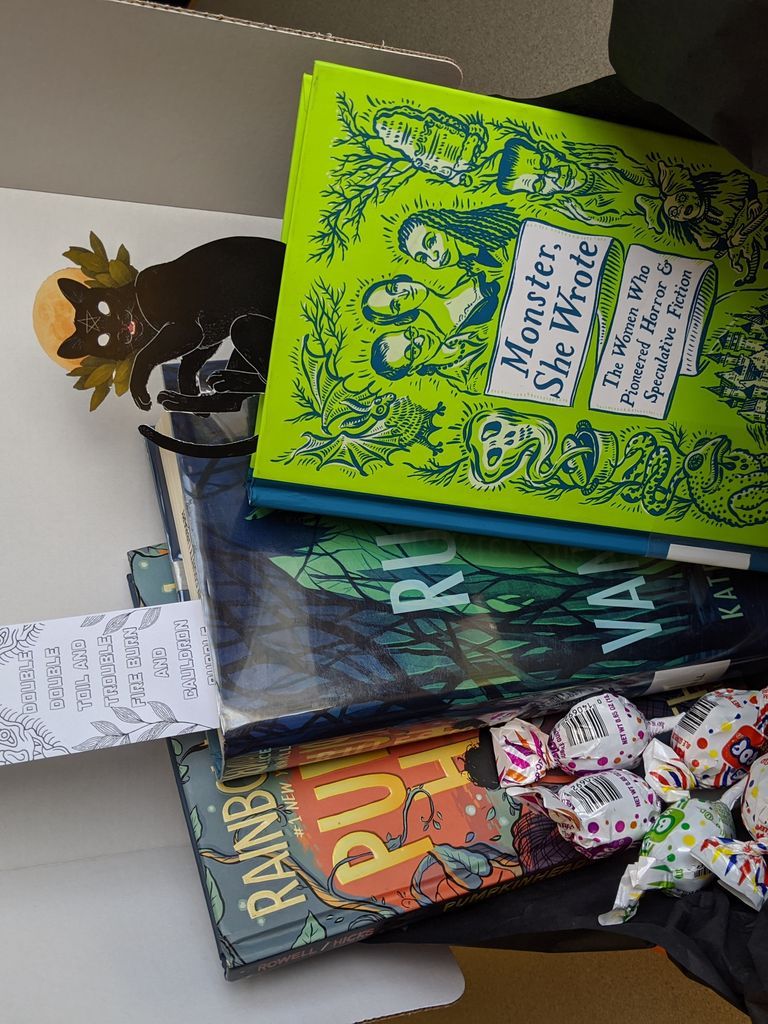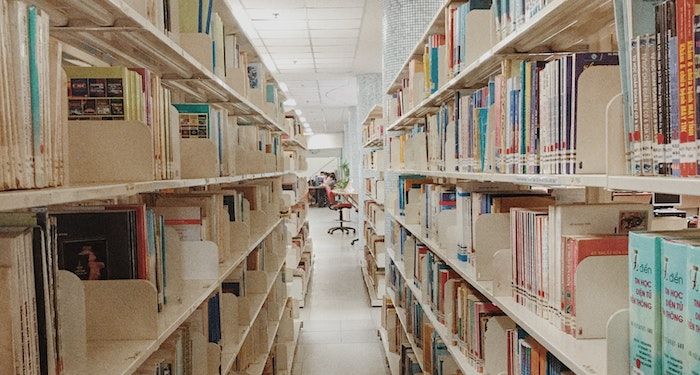On a usual Monday morning, the Louttit Library would have an overflowing book return bin as parents flood in for the first session of storytime. Now, the sun streams in through the windows as the children’s librarian quietly prepares a new bundle of books to put in her take-home storytime kits.
When the pandemic began to sweep across the country in mid-March, libraries big and small were forced to adapt all their programs to online platforms or completely scratch them off the calendar. Some libraries chose to alter pre-existing programs while others created new offerings entirely; take-home crafts, Zoom storytime, and personalized reading recommendations were suddenly popularly offered programs.
Here are the stories of six American library staff members who are going above and beyond.
Before COVID-19, Stephanie Barta, children’s librarian at the Louttit Library in West Greenwich, Rhode Island, ran a beloved storytime three times a week. When all programming came to an abrupt halt, Barta had to pivot to options for bringing the most popular services home to the patrons. She began offering “Take-Home Storytime Kits” in early May. The service served as an alternative to online and video storytimes.
“There was so much screen time for most people that a family friendly, at-home option was desirable,” says Barta. “The goal was to provide patrons with all the supplies they’d need to create a family experience of poring over the pictures, sharing stories, singing songs, and doing crafts together.”
The Take-Home Storytime Kits include books around a theme, a related craft, and a collection of songs and activities.
One state over, at the Beverly Public Library in Beverly, Massachusetts, more than books are being checked out to patrons. Each of the 25 “PLAY! Kits” center around frequently requested preschool topics, such as dinosaurs, kindness, and space, and include books, a puzzle, toy, or game, and a guide with suggested activities. Each kit comes in a bright, durable backpack. Margie McClory, head of children’s services, says the kits “were developed to extend the learning and fun beyond the children’s room.”

The kits were created by children’s librarians Joanna McElhenney, Kate Carpine, and Liz Caffi; the project was funded by the Mind in the Making Grant received in September 2019 from the Institute of Museum and Library Services, administered by the Massachusetts Board of Library Commissioners. The grant was originally written to refresh the service areas in the children’s room while promoting play. Young patrons were able to enjoy various updates to beloved spaces—a toddler section, a quiet reading space, and an area where children could practice writing and drawing—prior to the pandemic.
When March and the shutdown arrived, McClory says the library staff felt extremely lucky to have enough funding leftover to create the PLAY! Kits.
“They’re flying off the shelves,” says McClory. “One patron commented, ‘The new play kits are wonderful. I can only imagine how much time and energy must’ve taken to put them together. They have been bringing our house so much joy.’”
While other children’s library staff are going for screen-free amusement, a children’s librarian in Austin, Texas, is combining technology and tactile activities. Beginning in June, Kristin Johnson at the Wells Branch Public Library has been handing out an impressive 70 “Science-in-a-Bag” kits to young patrons each week.
From fall leaves chromatography, to red cabbage juice ph indicators, the science experiments are accessible: the ingredients are usually items found around the house, and kits are available to those who do not have the items already. Each craft goes with an accompanying story that Johnson shares online on the library’s Facebook page.

“I started to think, ‘What would I want as a parent?’” says Johnson. “And I realized I want hands on stuff that’s easy for parents to grab and just do with their kids. Even just looking at Pinterest and seeing all that stuff is overwhelming, I think, and I wanted to do something they could just take home with all the instructions and explanations right there.”
The idea for “Science-in-a-Bag” is a pivot from Johnson’s pre-pandemic program called “Wacky Science.” The program is a wonderful way for Johnson to combine two interests: Johnson originally majored in environmental science in college, before becoming interested in libraries and communication. She also gained experience in science programming for children while coordinating activities for the Austin Children’s Museum.
The weekly, in-person program would usually cater to around 20 kids. The sheer magnitude of kids interested in the take-home version has been stunning.
“We started out preparing around 25 kits a week. And then people kept calling and they’re like, ‘I’m here, there’s no craft.’”
For teens, Charleston County Public Library in Charleston, South Carolina is taking a more personalized approach. Young adult librarian Molly Thatcher and library generalist Rachel Hall came up with the idea of offering their teen patrons book subscription boxes. Each patron fills out a reading preference form, and then they receive a subscription box. The fall themed box includes three library books, Halloween candy, a bookmark that could be colored in, and an advanced reader’s copy of a new young adult title that they can keep. The teens are also invited to join a book discussion.

The closest thing the library had before the pandemic was personalized reading lists offered on their website, but the boxes are bringing a new joy to teens.
“Each box is unique,” says young adult services manager Andria Amaral. “I know there are some places doing subscription boxes where it’s all the same, everyone’s getting the same batch of books, but I really like it to be personalized. It adds a little personal touch and this is just a great way to make the teens feel special. One of the kids came in to get [the box] and said, ‘Oh, geez Louise, this just made my day. This is the best thing ever.’”
Teen patrons are not the only ones receiving valuable services from the Charleston County Public Library during the pandemic: the library is also offering professional development opportunities. When Staci Henderson, a workforce development librarian, began work in early March 2020, the world shut down just a few days later. She was soon immersed in a special project that would bring essential library resources right to patrons at home when they’d need it the most.
In September, Henderson and the staff at the library launched “Career Connection Kits.” Chief deputy director Darlene Jackson came up with the idea, wrote a grant through the Technology Acts Grant from the Institute of Museum and Library Sciences to receive portable hotspots, and then Henderson and the technology team worked to bring the vision to life.
The Career Connection Kits include a hotspot and a Chromebook with a browser preset with links to free, helpful resources for those seeking employment or those seeking to hone their professional skills. Links include job listings, sites for researching careers, skill strengthening courses—such as for typing, or Microsoft Excel—and tutorials made by library staff on interviewing and other subjects. Weekly challenges keep patrons on track in pursuing their professional goals.
“We know that there is a growing need for this kind of thing, especially with COVID,” says Henderson. “In South Carolina, there are big economic discrepancies…and a huge digital divide. The lack of connectivity can make it really difficult for job seekers to get the resources they need to even start to apply for a career. And so we’re trying to bridge that gap and provide an essential 21st century service to our community.”
On the other hand, the Pflugerville Public Library in Pflugerville, Texas, is offering essential physical items to its patrons. The library’s “Care Kits” are generally made up of personal hygiene items such as dry shampoo, tooth brush, toilet paper, insect repellant, masks, and more.
“When the pandemic hit and the library closed,” writes Jennifer Griswold, Director of Pflugerville Public Library, “we worried a lot about not only our guests, but everyone in the community who found themselves without basic essentials.”
The kits are fashioned after the library’s “Care Cabinet,” a self-serve area within the building where patrons could previously take what they needed. The idea was originally Youth Librarian Melissa Grzybowski’s in July 2019, and Pflugerville’s Friends of the Library group helped provide the supplies. During the pandemic, the community has stepped in: over 4,000 items have been donated to the library. Between July 2020 and today, library staff have given out 200 kits.
From Rhode Island to Texas, it is evident that libraries—as most in the bookish world are already aware—provide incredible resources that stretch far beyond books and movies. From take-home storytime kits bringing families closer, to care kits that provide essential items to those in need, libraries are playing a crucial part in keeping communities connected and cared for.
